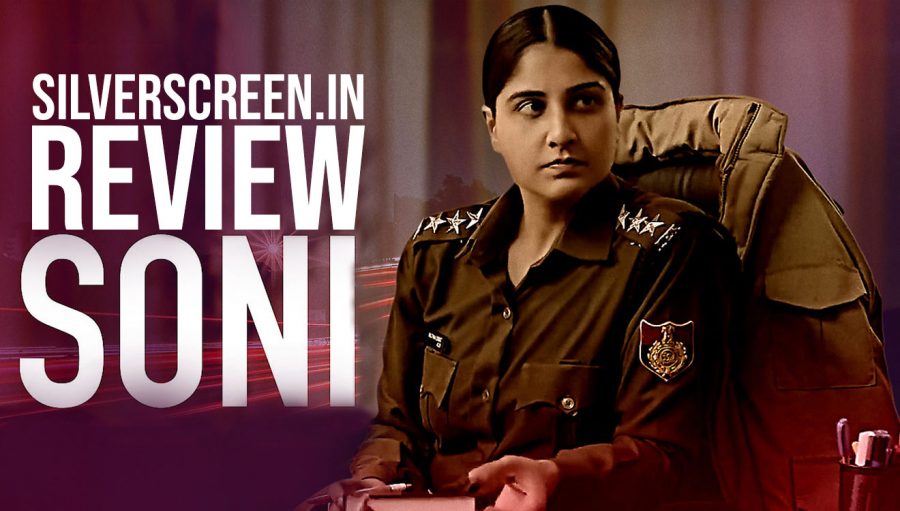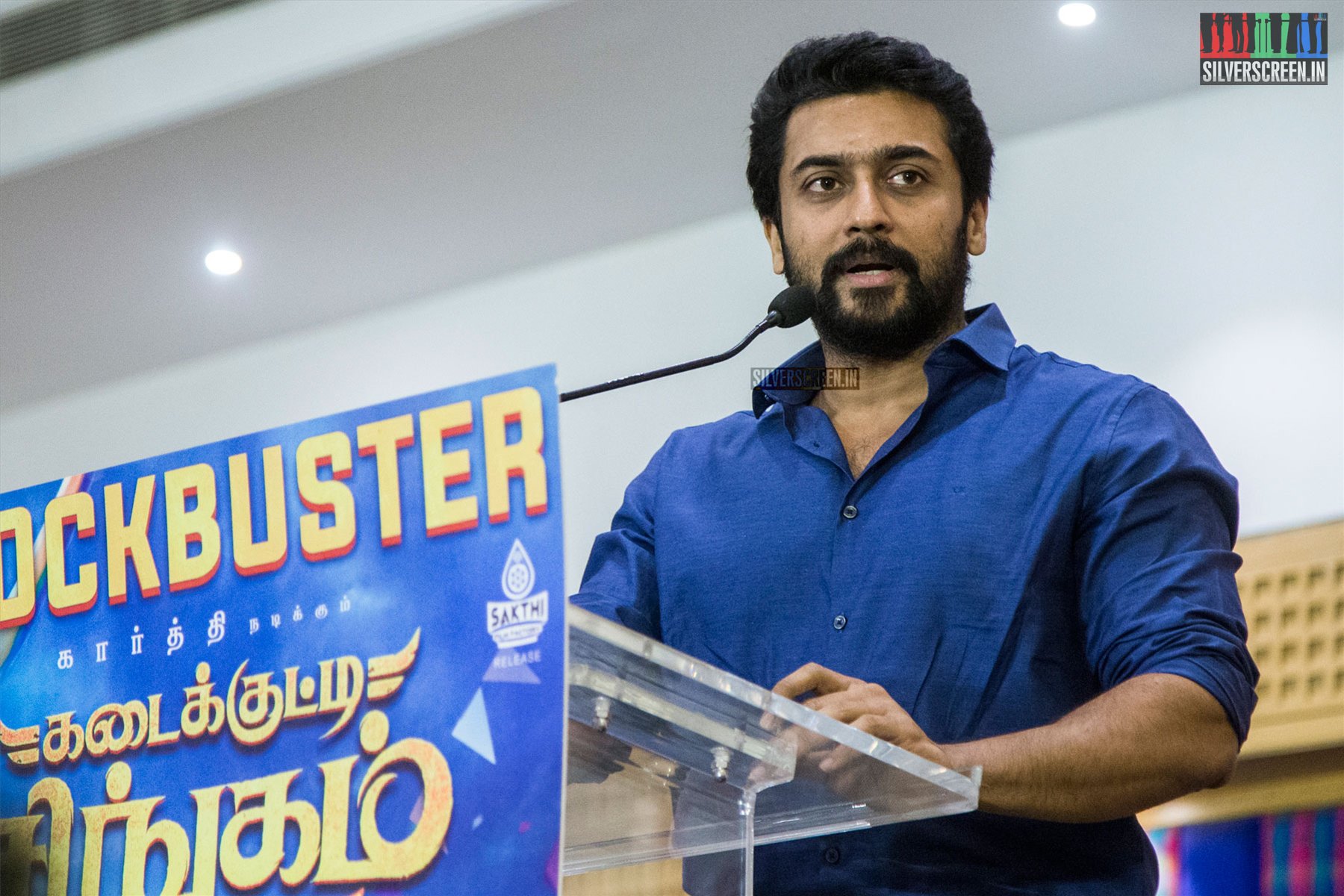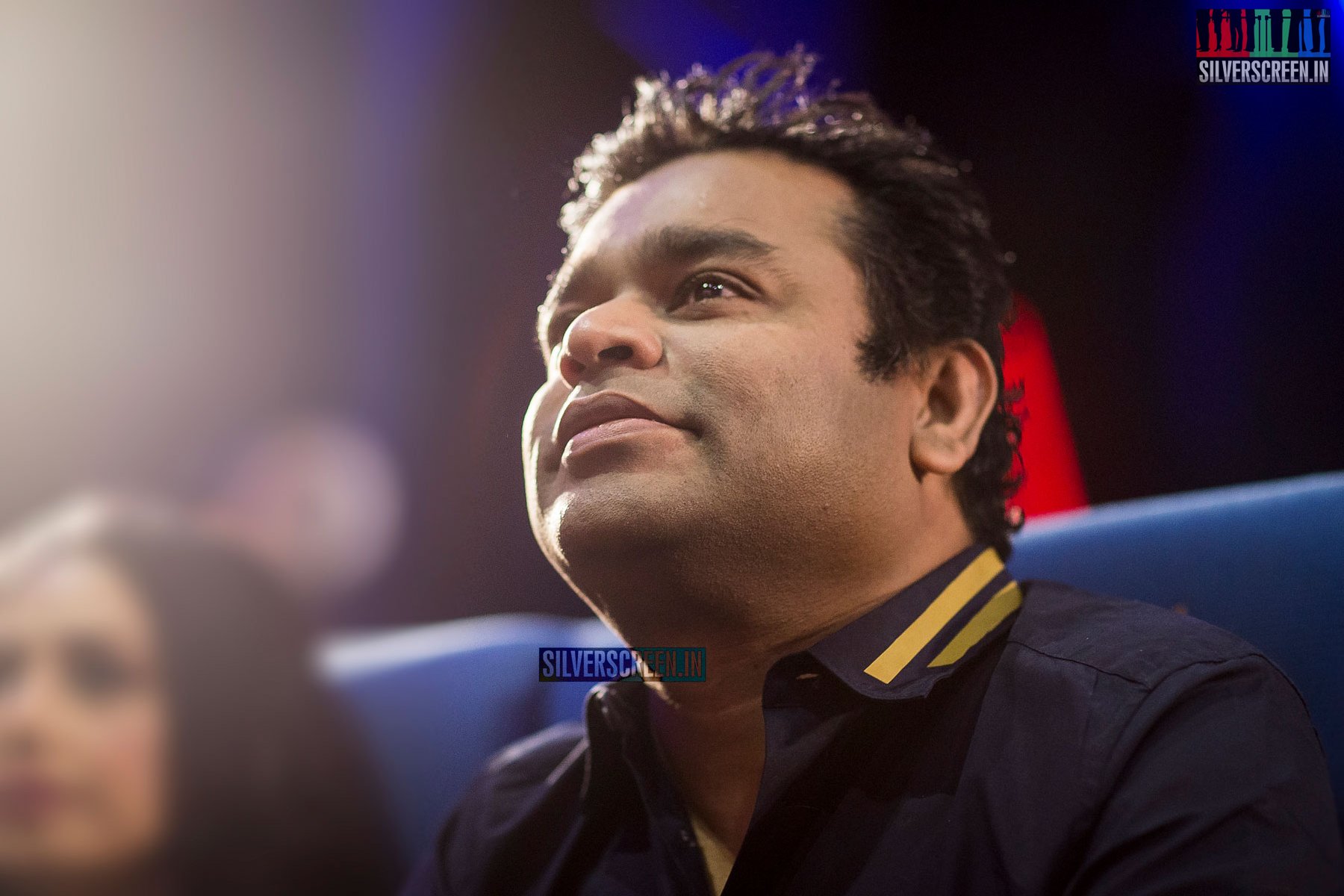Director: Ivan Ayr
Cast: Geetika Vidya Ohlyan, Saloni Batra, Vikas Shukla, Mohit Chauhan
Composer: Nicholas Jacobson-Larson, Andrea Penso
Cinematographer: David Bolen
The best scene in Soni – Ivan Ayr’s directorial debut now streaming on Netflix – comes at about three quarters into the film when Soni (Geetika Vidya Ohlyan) is taking a long walk through a narrow lane, made narrower thanks to the barricades guarding the metro construction, in the dead of the night. She is a police officer and a decoy operation like this one is her bread and butter. She checks on some noisy, suspicious looking miscreants, takes in their loud night-time conversation about lack of private spaces in the capital, about brothels and trigger-happy police officers, and is now walking back with more than a hint of fear brooding inside her. Not long ago, she was the confident police officer, at times her anger manifesting as threatening speed-breakers to her career.
Soni’s very first scene, in the darkness just before dawn, has the eponymous character taking down a cat-calling stalker all by herself. But tonight, it is different, a moral darkness clouds her from all sides. Her confidence has taken a hit and the city of Delhi has bared its ugly underbelly to her, murky with politics, patriarchy, class wars and a complete lack of empathy. The uniform was supposed to give her socially and officially sanctioned power even as the city itself struggles to keep its women safe. But Soni, along with her superior Kalpana (Saloni Batra), find out that that sanction is a myth.
Ivan Ayr’s film (written by Ayr and Kislay, shot by David Bolen), in a span of crisp 97 minutes, lets us spend a few months in the lives of Soni and Kalpana, and how their professional and personal lives eat into each other. Anger is the defining mood in Soni, not the quick temper kind but the one that’s festered for long deep inside, that seeps into the conscious and the subconscious in several different ways. Soni feels oppressed not just by her partner but even by the mere presence of his shirt in her house. A 13-year-old girl wishes she could gun down her classmates for their unscrupulous ways. Soni’s anger issues land her in trouble all the time and only Kalpana seems to understand where they come from and how to treat them. For everyone else, it is an issue to order an inquiry into. Kalpana is aware of Soni’s struggles with her personal life, her problems with her partner and she chooses to go easy on her subordinate.
In Kalpana’s circle (her husband is a senior police officer as are their close friends), the kind that throws lavish 13th birthday parties, it becomes a class issue. Soni is regarded as someone for whom domestic violence runs in the family and therefore inured to all kinds of violence. Kalpana assumes the traditional gender role in the domestic setting, she gets asked about children while clearing kitchen cabinets as the men – police officers just like Kalpana – sit in the background drinking. We get offhand dialogues that go a long way in establishing the class issues – Kalpana’s family friend complains how “these people” (house-helps) are all slackers and refers to one sarcastically as the queen. Kalpana says it’s okay, we can take care of this ourselves, a quality that the friend attributes to Kalpana’s sun sign. In contrast is Kalpana’s treatment of people working under her – her driver Govind and even Soni.
But Kalpana herself can be blind to some class related issues. Two men and a woman create a ruckus in the police station, the woman claiming that her landlord misbehaved with her. Soni takes their complaints and is shrewd enough to realise that this is a land-related issue and orders them to sort it out between themselves. Kalpana would have none of it, she wants to go through the official channels and due process is her friend. Kalpana is humbled when she finds out that Soni was right. They both take in lessons from each other, either by directly learning from each other or just by example.
In an early scene, we see Soni’s helpful Muslim neighbour asking Soni to apply sindoor to avoid lecherous onlookers. Kalpana berates Soni for advising a young girl to dress like a man to stay away from the moral policing brigade. When Kalpana narrates an anecdote about her colleagues bickering over whether to cremate or bury an unidentified body, Soni tries to rationalise before Kalpana beginning to tell her about the clues in the male body holding the answer to that question.
In Soni, women constantly look out for each other, sometimes even the unnamed characters. Soni and Kalpana always have each other’s back while Soni’s daily life is in motion thanks to her neighbour. Kalpana is her 13-year-old niece’s best friend and confidant. Soni gets transferred to the control room (operated mostly by women) and an unnamed senior tells her how to deal with the calls, even the ones that ask for the operator’s mobile number. Her advice is to laugh it off. Kalpana reprimands one of the male officers for intimidating – just by crowding over with two other men – an unidentified woman lost in the city.
In Soni, empathy is an emotion that finds home only in the hearts of women. Not very different from reality. Men order the two police officers around and find faults in them – that they are too soft in dealing with fellow colleagues or that they make friends out of their subordinates or they take an unhealthy amount of interest in their personal lives. The women are asked why they become so emotional. One goes as far as to suggest that his absence in the woman’s life is what’s causing distress in her life.
In the outside world, tourism ministers suggest segregation, separate buses and trains as the solutions for making the city safe for women. The Prime Minister addresses the Indian Science Congress (the infamous one where fiction and mythology dominates science) and claims India will be foremost in scientific advancements by 2030. The other news items are Kashmir, floods ravaging the eastern parts of India and the mounting tension in the Middle East. It is just Ayr’s way of saying that decades have passed while the problems have remained the same.
Recommended
Soni is shot in the coldness of Delhi’s winter, the nip in the air tipping a hat to the indifference and insensitivity of its people. Ayr uses long takes and tracking shots to draw tension into every sequence, the filmmaking so deft that it disabuses us of the fact that this is Ayr’s debut. Geetika Vidya Ohlyan and Saloni Batra turn in fantastic performances. Every actor’s mettle is tested when asked to hold a shot of length, especially a single take with the face as the only apparatus. Ohlyan more than holds her own in that almost five-minute tracking shot as she walks that lane, slipping a bit, watching a rickshaw pass her, the metro construction reminding her of the city at large, suddenly all too aware of her surroundings and her vulnerabilities. A spirit remains broken, finding ways to regroup in Amrita Pritam (a gift from Kalpana) and aided by Kalpana’s renewed assertiveness.
*****
The Soni review is a Silverscreen original article. It was not paid for or commissioned by anyone associated with the film. Silverscreen.in and its writers do not have any commercial relationship with movies that are reviewed on the site.



